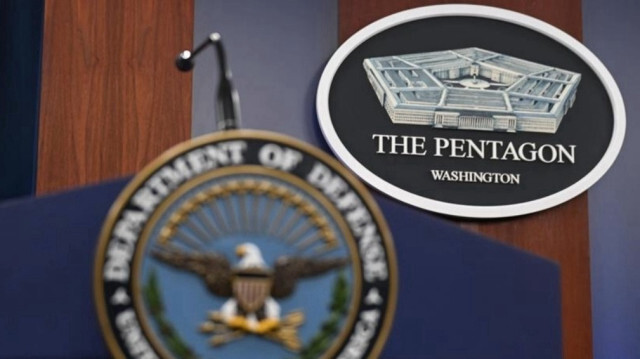Legal Battle over Georgia Election Inquiry Intensifies
As the legal tussle unfolds in Georgia, Trump's election interference case faces potential delays with the controversy over DA Fani Willis's role.
Published May 09, 2024 - 00:05am

Image recovered from bostonglobe.com
A pivotal turn of events has emerged in the ongoing legal battle that Donald Trump faces concerning allegations of 2020 election interference in Georgia, with recent developments indicating potential delays and implications for the former president's political future.
An appeal lodged by Trump's defense team calls into question the suitability of Fulton County District Attorney Fani Willis due to a reported romantic relationship with special prosecutor Nathan Wade. The conflict of interest claim has led to an upcoming review by the Georgia Court of Appeals, a move that could significantly stall the case's progression to trial, especially pertinent as the November general election approaches with Trump's anticipated Republican nomination.
In a recent determination, Superior Court Judge Scott McAfee allowed Willis to continue leading the case but highlighted an 'appearance of impropriety' that necessitated Wade's resignation. Charges against Trump and 18 co-defendants involve a purportedly extensive scheme to overturn Georgia's election results using Georgia's Racketeer Influenced and Corrupt Organizations (RICO) law. However, the gravity of these accusations has been somewhat eclipsed by the prosecutors' personal controversies.
Trump's attorneys have argued that the allowance for Willis to stay on the case only if Wade left is both illogical and contrary to Georgian law, advocating for their complete removal from the case. The defense asserts that this relationship has financially benefited Willis improperly, contributing to an opaque legal process.
Adding to the complexities, Fox News legal analyst Paul Mauro posited that the Georgian case might be 'falling apart'. He implied that the Senate should subpoena Willis' texts with Wade, potentially exposing her to perjury. The overall sentiment is one of increasing scrutiny over the conduct and impartiality connected to the case.
Given the expansive accusations spanning potential election interference and racketeering, a significant level of attention from media outlets globally, including Fox News and European sources, is aimed at tracking the developments of this high-stakes legal drama. These unfolding events not only hold weight for Trump's legal standings but also for his prospective political ambitions, raising the stakes for all involved parties.
The revelation of a purported conflict of interest between Fulton County District Attorney Fani Willis and special prosecutor Nathan Wade begs closer scrutiny into the political implications that this legal entanglement might have for Donald Trump. The timing of these events draws considerable attention as any delays could disrupt Trump's preparations and campaign strategies for the upcoming election, wherein he is expected to seek the Republican nomination for president.
While the defense's move aims to question the integrity of the prosecution, it raises broader questions about the role of personal relationships in the legal system and their effect on public trust. Arguably, the judicial system must not only be impartial but also appear to be so, to maintain confidence in legal outcomes. The attention brought to Willis and Wade's alleged relationship thus casts a shadow that extends far beyond the immediate litigants and touches on the heart of judicial propriety.
As the legal team for Trump wages a battle against what they perceive as improper influences within the prosecution, political analysts are closely observing the broader impact this case could have on the public's perception of the electoral process and justice system. The former president's ability to combat these allegations and manage the associated public relations challenges will be pivotal to his political viability ahead of the 2024 presidential election.
The case takes on additional layers of complexity when considering the multifaceted nature of the charges. Under the RICO law, a successful prosecution must prove the existence of an enterprise and criminal actions taken in furtherance of that enterprise's interests. This will require Willis's team to navigate not only the intricate legal arguments surrounding the alleged interference but also the additional scrutiny brought on by her professional connections.
Legal experts are closely watching as the Georgia Court of Appeals reviews Willis' role in the proceedings. Should the court find that her relationship with Wade represents a substantial conflict of interest, the resulting reorganization of the prosecution could cause significant upheaval. This would not be without precedent, as courts have historically demonstrated sensitivity to appearances of bias that may undermine fairness in the legal process.
Despite the sensational nature of the legal controversies surrounding Trump, the American public and international observers alike are reminded of the fundamental principles at stake. The durability of democratic systems often hinges on the perceived legitimacy of legal mechanisms and political processes. As both the defense and prosecution navigate the unfolding case, they engage in a broader dialogue regarding the sanctity of electoral integrity and judicial ethics — a conversation that resonates far beyond Georgia's borders.
The outcome of the case may ultimately signal to Americans and onlookers worldwide the resilience of legal frameworks in the face of political pressures. Regardless of the final verdict, the discussion surrounding this case is likely to influence the discourse on the rule of law, the potential for political influence in legal proceedings, and the critical importance of maintaining a separation between personal and prosecutorial interests within the justice system.

:format(jpeg)/cloudfront-us-east-1.images.arcpublishing.com/elespectador/E4FBVWFOZFFKJPADSHULE3OZ5U.jpg)




